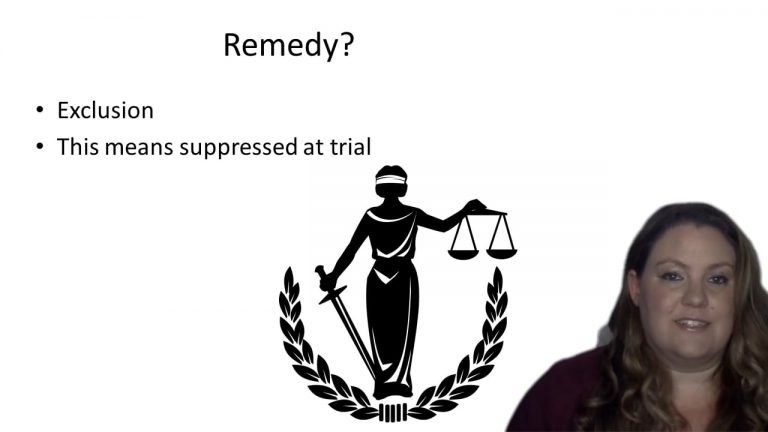SmartBrief
Confirm favorite deletion?
Criminal Procedure keyed to Kamisar
Maryland v. Pringle
Citation:
540 U.S. 366, 124 S.Ct. 795, 157 L.Ed.2d 769 (2003)Facts
A police officer pulled over a car for speeding. The car was occupied by three people: the driver, a back-seat passenger, and Pringle who was sitting in the front seat. When the officer asked the driver for his license and registration, he noticed a large amount of rolled-up cash in the glove compartment. The officer ran a check on the driver’s license and registration, which did not reveal any violations. The officer asked the driver if he had any weapons or narcotics. The driver said he did not and consented to a search of the car. The officer found $763 in the glove compartment and 5 plastic baggies of cocaine from behind the backseat armrest. None of the men in the car offered information regarding ownership of the drugs, so they were all arrested.
Later that morning, Pringle confessed to owning the cocaine. At trial, Pringle filed a motion to suppress his confession as fruit of an illegal arrest, which the court denied. He was convicted of possession of cocaine and possession with intent to distribute cocaine. The Court of Appeals of Maryland reversed the conviction, holding that, absent specific facts tending to show Pringle’s knowledge and control over the drugs, the mere finding of cocaine in the car was insufficient to establish probable cause.
Only StudyBuddy Pro offers the complete Case Brief Anatomy*
Access the most important case brief elements for optimal case understanding.
*Case Brief Anatomy includes: Brief Prologue, Complete Case Brief, Brief Epilogue
- The Brief Prologue provides necessary case brief introductory information and includes:
Topic:
Identifies the topic of law and where this case fits within your course outline.Parties:
Identifies the cast of characters involved in the case.Procedural Posture & History:
Shares the case history with how lower courts have ruled on the matter.Case Key Terms, Acts, Doctrines, etc.:
A case specific Legal Term Dictionary.Case Doctrines, Acts, Statutes, Amendments and Treatises:
Identifies and Defines Legal Authority used in this case.
- The Case Brief is the complete case summarized and authored in the traditional Law School I.R.A.C. format. The Pro case brief includes:
Brief Facts:
A Synopsis of the Facts of the case.Rule of Law:
Identifies the Legal Principle the Court used in deciding the case.Facts:
What are the factual circumstances that gave rise to the civil or criminal case? What is the relationship of the Parties that are involved in the case.Issue(s):
Lists the Questions of Law that are raised by the Facts of the case.Holding:
Shares the Court's answer to the legal questions raised in the issue.Concurring / Dissenting Opinions:
Includes valuable concurring or dissenting opinions and their key points.Reasoning and Analysis:
Identifies the chain of argument(s) which led the judges to rule as they did.
- The Brief Prologue closes the case brief with important forward-looking discussion and includes:
Policy:
Identifies the Policy if any that has been established by the case.Court Direction:
Shares where the Court went from here for this case.

 15m 53s
15m 53s